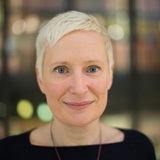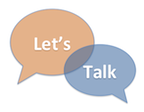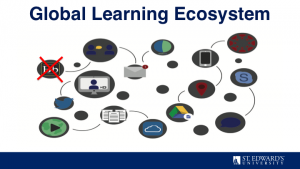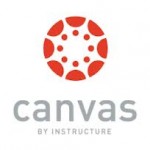The Teaching, Learning, and Technology Roundtable (TLTR) invites proposals for the Technology for Innovative Learning & Teaching Pilot Project Grants (TLTR Pilot Project Grants) for 2017-2018 by February 24 (pre-proposal) and March 10 (final proposal). Continue reading
Author Archives: Rebecca Davis
Experiments in Teaching–Save the Date!
 Please mark your calendars for:
Please mark your calendars for:
Wednesday, February 22, 3:30 – 5:30 pm
Jones Auditorium and Lobby (Ragsdale 101)
Co-sponsored by the Center for Teaching Excellence, Instructional Technology, and the Munday Library
We invite all teaching faculty (full-time, adjuncts, and staff who teach), staff, and administrators to join us for talks and a reception celebrating pedagogical experiments on campus. Featuring a wide variety of St. Edward’s faculty members making brief presentations about their innovative teaching projects, “Experiments in Teaching” will explore the range of teaching initiatives at St. Edward’s University and the models they afford our teaching community. We aim to create a venue for colleagues to share the challenges and successes of teaching innovation. The event will be an open reception with food, drink, and “lightning” talks, followed by informal conversation among all participants. Presenters will use the brief lightning talk format to share a “teaser” for their project then be available for more conversation. Lightning talks will begin at 3:30 pm.
Pre-Register for the Event: https://goo.gl/forms/W5i7jxc9CCCCgYTw1
CFP: Innovation Fellowships to Support General Education Revision and QEP
 The Office of Academic Affairs, the Center for Teaching Excellence, the Munday Library, and the Office of Instructional Technology of St. Edward’s University invite proposals from faculty for the 2017-18 Innovation Fellowship to be submitted by March 10, 2017. Continue reading
The Office of Academic Affairs, the Center for Teaching Excellence, the Munday Library, and the Office of Instructional Technology of St. Edward’s University invite proposals from faculty for the 2017-18 Innovation Fellowship to be submitted by March 10, 2017. Continue reading
General Faculty Meeting 2016 Technology Update
Rebecca Frost Davis, Director of Instructional and Emerging Technology gave an update to faculty at the general faculty meeting on Tuesday, August 23, 2016. Since she was one in a long parade of speakers, this blog posts shares that update in written form, as well as links to items covered.
Global Learning Ecosystem
We think of ourselves as part of a global learning ecosystem—students learn in and out of the classroom, on and off campus, locally, globally, face-to-face and online. The same is true of us–faculty, staff, and administrators at St. Edward’s University. And the real kicker, the ecosystem is constantly changing. Some changes we drive, like discontinuing use of Blackboard, and some change is thrust upon us. Both our graduates and our colleagues need resilience to deal with all of this change. In the Office of Information Technology, we’ve been focusing on developing internal processes of adapting to that change by experimenting, gathering data, and iterating. In other words, we are using research to drive change. So, what do we know from that experience, and what changes can you expect when you enter the classroom next week? Continue reading
Dr. Mia Ridge Speaks on Crowdsourcing, March 10, 2-3 pm, Fleck 314
 We invite you to join us for a presentation by Dr. Mia Ridge, Digital Curator, British Library on Thursday, March 10, 2-3 PM in Fleck 314.
We invite you to join us for a presentation by Dr. Mia Ridge, Digital Curator, British Library on Thursday, March 10, 2-3 PM in Fleck 314.
Dr. Ridge will address how crowdsourcing projects might offer an opportunity for students to contribute to both cultural heritage and citizen science projects. Dr. Ridge is the editor of Crowdsourcing Our Cultural Heritage (2014). Formerly Lead Web Developer at the Science Museum Group, Dr. Ridge has published and presented widely on her key areas of interest including: user experience design, human-computer interaction, open cultural data, audience engagement and participation in the cultural heritage sector and digital history.
Refreshments will be provided.
Intellectual Property for Faculty and Digital Course Materials
In Fall 2015, the Faculty Senate asked Rebecca Frost Davis, Director of Instructional and Emerging Technology, about the issue of intellectual property for faculty and digital course materials. Her reply was shared with all faculty members with the Faculty Senate Agenda for the meeting on January 29, 2016 and is reproduced below. This text is intended to provide information about common practice in higher education and is not a legal opinion.
I believe that there are two areas of ambiguity in intellectual property for faculty around the digital assets of their courses. In particular, I am speaking of what we call the “course shell,” which is essentially all the material and the course layout in the learning management system, e.g., Blackboard, Canvas, etc. Because course shells can be exported from one system and imported into another (even between institutions), the issue of ownership is called into question. The two areas of ambiguity are 1) low-residency, hybrid or online programs and 2) courses taught by multiple instructors, especially including contingent faculty members.
1) Low-residency, hybrid or online programs
The first area of ambiguity comes with online or low residency courses because their course shell is so much more substantial and often requires that substantial university resources go into course construction. While we have no way of knowing how much time a faculty member puts into constructing a typical face-to-face course, I do know that for online or low residency courses where an instructional designer designs the course shell, the instructional designer typically puts in 150 hours of work (this does not include faculty labor). For this reason, we advise those programs considering hybrid, low-residency, or online programs to create contracts with faculty clarifying ownership of the course and its assets.
The new low-residency MBA program provides a good example of this issue because courses are designed to be taught by multiple faculty members for the program. Faculty designers knew this from the beginning, signed contracts to that effect, and are actively designing the courses for reuse by others. For example, courses include videos from multiple university community members to better represent the Munday School of Business rather than just the course designer. Nancy Schreiber would be the best person to ask about these contracts.
Contracts that clarify intellectual property are best practice in this area; typically, the university retains ownership of the course shell, especially where they supplied substantial resources for design and creation of the faculty member was contracted to design the course for reuse by others. In effect, this does not mean the faculty member cannot teach the same content at another university (that would be difficult to monitor), but it does mean they should not be exporting the course shell, video content, etc., and reusing it at another institution without permission. It also means that the university can reuse these digital assets even if the original designer has left the university.
2) Courses taught by multiple instructors
A second area of confusion comes with courses taught by multiple instructors, like many of our required courses for general education or courses required for certain programs that are taught by multiple faculty members, especially contingent faculty members. Instructors at St. Edward’s routinely share course materials, pedagogical approaches, and teaching ideas. That is part of our vibrant culture of teaching and learning, and I would hate to see that end because of concerns about intellectual property. Once again, however, because technology makes that sharing even easier, it can also lead to abuses.
It is common practice for instructors to request that their course be copied for use by another instructor. Instructional technology also gets requests from new or contingent faculty for a copy of another instructor’s course shell. This practice is an extension of the practice of sharing syllabi with new faculty. For example, when I taught Latin at UT, I was given multiple syllabi from former versions of the course as a model for my course. I don’t have exact numbers at hand for how often each of these happens at SEU, but I would be happy to ask my team to look into it. In either case, our practice is to only make copies with the permission of the instructor or, if the instructor is no longer available, with the permission of the department chair or someone else with authority over the course.
Canvas offices a promising new functionality that will clarify ownership and sharing. Canvas Commons allows instructors, departments, and schools to share materials, assignments, course elements, and even whole courses. These can be shared with departments, schools, the whole university, or the general public. Those who share are required to label their material with a license, which can range from “Copyright, All Rights Reserved” all the way up to the most open Creative Commons License. This is a great solution for making transparent the sharing that goes on between instructors and within departments, programs, and schools at SEU because it puts control of the material in the hands of the faculty creator. You can find out more about Canvas Commons here: https://stedwards.instructure.com/accounts/1/external_tools/101?launch_type=global_navigation
Deadline Extended: Proposals for 2016-2017 Innovation Fellowships and TLTR Pilots due February 8, 2016
 The deadline has been extended for Innovation Fellowships and TLTR Pilots (aka Technology for Innovative Learning & Teaching Pilot Project Grants).
The deadline has been extended for Innovation Fellowships and TLTR Pilots (aka Technology for Innovative Learning & Teaching Pilot Project Grants).
CFPs are available online for both the 2016-2017 Innovation Fellowships and the 2016 Technology for Innovative Learning & Teaching Pilot Project Grants. Proposals for each are due Monday, February 8, 2016. There is an abbreviated TLTR form for those submitting combined proposals.
These opportunities are open to both tenure-track and non-tenure-track (including adjunct) faculty. You may apply for one or both of these opportunities, even if you have already applied for and received a Presidential Excellence Award for the summer of 2016.
More Information is available online:
- Innovation Fellowship Call for Proposals: http://think.stedwards.edu/instructionaltechnology/innovationfellowship
- Technology for Innovative Learning & Teaching Pilot Project Grants Call for Proposals: http://think.stedwards.edu/tltr/pilotprojects
Register by 12/1 for Free, Local Event on Digital Pedagogy, January 5-6, 2016
 Join local and national faculty to network, share ideas, assignments, and techniques for integrating digital technologies into teaching and learning. THATCamp Digital Pedagogy ATX 2016 seeks to bring together diverse participants to share ideas, issues and strategies around teaching and learning with digital tools and methods. Registration is free, but space is limited and we request that you only register if you are actually planning to attend. Find out more and register by December 1 here: http://dpatx.thatcamp.org/
Join local and national faculty to network, share ideas, assignments, and techniques for integrating digital technologies into teaching and learning. THATCamp Digital Pedagogy ATX 2016 seeks to bring together diverse participants to share ideas, issues and strategies around teaching and learning with digital tools and methods. Registration is free, but space is limited and we request that you only register if you are actually planning to attend. Find out more and register by December 1 here: http://dpatx.thatcamp.org/
St. Edward’s Office of Information Technology is co-sponsoring this event and several St. Edward’s faculty and staff have contributed to planning, including the logo designed by St. Edward’s University graphic design student Melany Klopp. The event will be held in Austin, Texas at the University of Texas Libraries’ new Learning Commons on January 5-6, 2016 (just before the annual convention of the Modern Language Convention also in Austin). THATCamps (The Humanities And Technology Camp) are unconferences that originated in the digital humanities community. This one has been organized by a network of digital humanists in the Austin area.
Inside Great St. Ed’s Courses: A Guided Tour of How They Work
Please join Instructional Technology and the Center for Teaching Excellence for this event on
Thursday, November 12, 3:30 – 5:00 pm, Fleck 305
Inside Great St. Ed’s Courses: A Guided Tour of How They Work
One of the advantages of digital course tools is that they allow us to archive and share our course design. For this panel, we asked a variety of faculty members whose pedagogy is made visible through Canvas to show us the inner workings of their courses. Learn how they structure the semester’s work, facilitate ongoing student interaction inside and outside of class, provide timely feedback and grades, check students’ knowledge through quizzing, organize group activities, and deepen student engagement. Courses will be shared by:
- Tricia Shepherd, Professor of Chemistry
- Susie Brister, Adjunct Professor of Art
- Carol Gee, Associate Professor of Mathematics
- Casey Sherman, Assistant Professor of Mathematics,
- Elisabeth Johnson, Associate Professor of Literacy
- Grant H. Potts, Adjunct Professor of University Studies
- Debra Zahay-Blatz, Professor of Marketing
- Billy Earnest, Assistant Professor of Communication
Let’s Talk: Updates from Instructional Technology
 There’s a lot going on with instructional technology this year. To help you keep track, below is a round up of what’s on our mind and how it might impact you. To ask questions, seek help, or share your thoughts, please email us at instcom@stedwards.edu or contact any instructional technology staff member. Continue reading
There’s a lot going on with instructional technology this year. To help you keep track, below is a round up of what’s on our mind and how it might impact you. To ask questions, seek help, or share your thoughts, please email us at instcom@stedwards.edu or contact any instructional technology staff member. Continue reading

